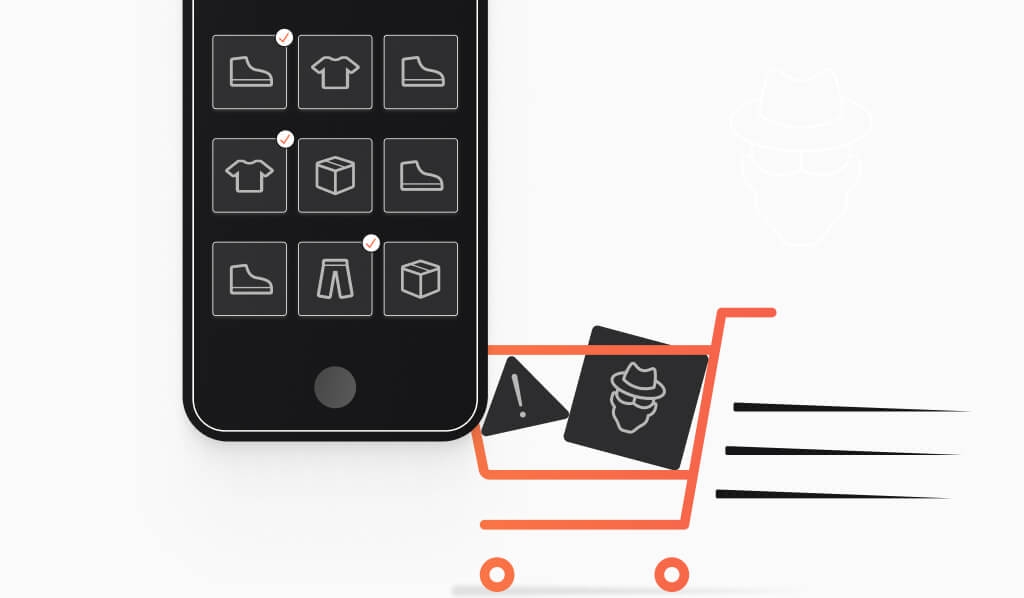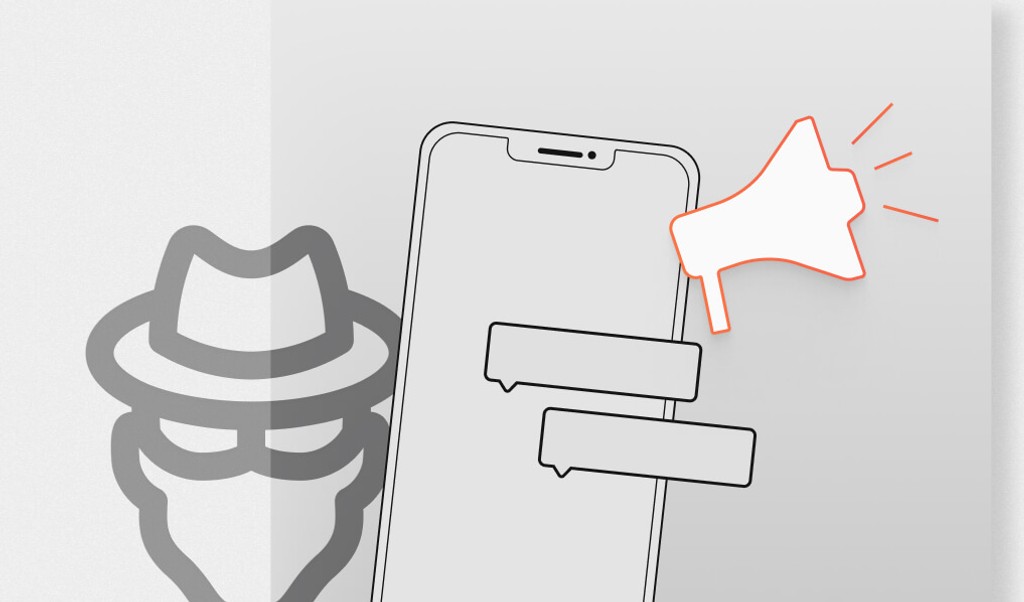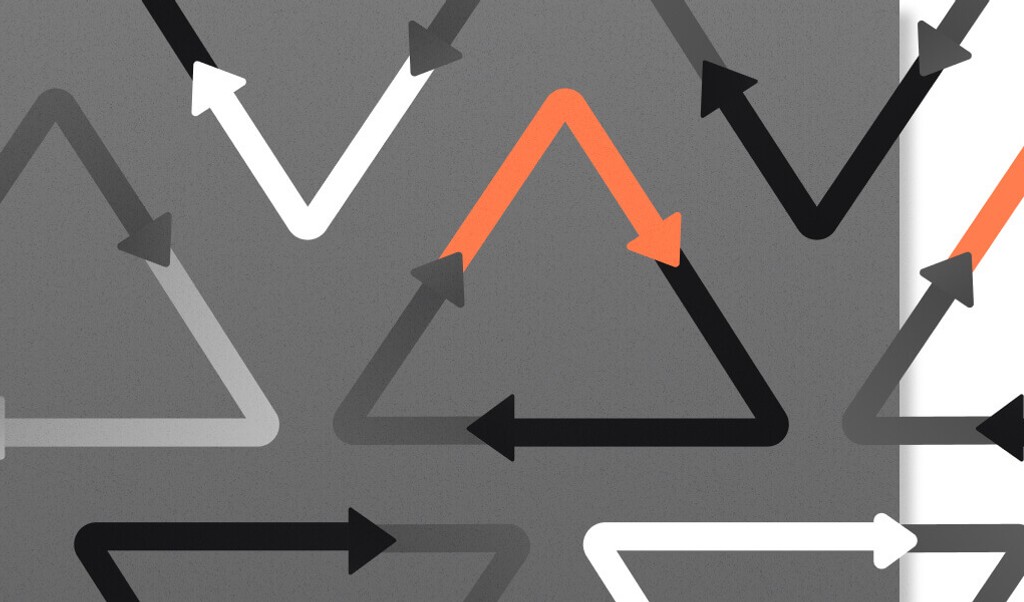
Summarize this article with
If you're running a successful eCommerce, housing, pharmaceutical, vendor, or job marketplace, your platform is a trusted resource for your users. However, like any online platform, fraud poses a real threat, not only to your business but also to your users.
Online marketplace fraud is becoming increasingly common as online marketplaces become more heavily used and relied upon. One study even found that as many as 1 in 5 online listings could be fraudulent. Fraudulent activities on online marketplaces range widely from online scams to account takeovers to review fraud to malicious actors seeking to steal data or financial information.
To protect your users and your business, your marketplace must safeguard against potential dangers. Learn more about the types of marketplace fraud you must defend against, common marketplace scams, and tips for protecting your marketplace and users from fraud.
What is online marketplace fraud?
Online marketplace fraud is deceptive behavior in which unethical buyers or sellers attempt to make an illicit profit through fraudulent activity. All marketplace revenue models, such as business-to-business (B2B), business-to-consumer (B2C), and peer-to-peer (P2P) marketplace transactions, are potential targets of fraudulent activities.
Marketplaces are online platforms that connect businesses and/or individuals with similar interests. These platforms allow them to conduct transactions without the need for physical interaction. B2B, B2C, and P2P are the three main types of marketplaces.
B2B (business-to-business) marketplaces
B2B marketplaces allow businesses to trade goods and services with each other There are different types of B2B marketplaces, such as eCommerce marketplaces like Handshake or Alibaba, where businesses can buy and sell products online, and vendor marketplaces like Packhelp or Upwork, where businesses can find and hire vendors that offer specific services. In addition, there are also pharmaceutical marketplaces like Pipeline Pharma, where businesses can purchase pharmaceutical products.
B2C (business-to-consumer) marketplaces
B2C marketplaces, on the other hand, enable businesses to sell their products or services directly to consumers. eCommerce platforms such as Amazon or Shopify are examples of B2C marketplaces where businesses can set up online stores and sell their products to customers. Housing platforms like Booking.com or Airbnb are also considered B2C marketplaces since they connect homeowners with travelers looking for a place to stay.
P2P (peer-to-peer) marketplaces
P2P marketplaces connect individuals who own a product or offer a service with people who want to buy or rent it. These marketplaces allow individuals to monetize their assets, such as their homes, cars, or handmade products. Famous examples of P2P marketplaces include Etsy, Uber, Airbnb, and Poshmark, among many others. You can read more about P2P payments and fraud on these platforms in our P2P (Peer-To-Peer) Fraud Research Guide.
Types of fraud that are hurting your marketplace
Online marketplaces are becoming increasingly popular, but unfortunately, they are also at risk of fraud. This can lead to chargebacks, data breaches, and customer loyalty and trust loss. As a marketplace owner, it is important to know the common types of fraud that can harm your business. Below are four common types of marketplace fraud that you should know about
Account takeover
One type of fraud that can affect your marketplace is account takeover. This occurs when a criminal gains access to one of your customers' marketplace accounts, changes the account details, then carries out unauthorized transactions. This kind of identity theft can be devastating for your customers, and it can also harm your business.
CNP (card not present) fraud
As most online marketplace transactions occur without the card being physically presented, they are acutely at risk of CNP (card not present) fraud. This type of fraud happens when a malicious user acquires a customer's credit card details through skimming, hacking, or phishing and then carries out unauthorized transactions on your site. This is a serious problem for both your customers and your business, as it can result in significant financial losses.
Triangulation fraud
Another type of fraud that can harm your marketplace is triangulation fraud. This occurs when a customer makes a legitimate purchase on an online marketplace but receives a product that was fraudulently purchased from a different retailer's website. This kind of fraud can be difficult to detect and can harm your reputation if customers receive inferior or counterfeit products.
Phishing
Phishing is a type of fraud that involves sending fraudulent emails designed to commit identity theft or gain access to online accounts through social engineering. In the context of online marketplaces, this can occur via in-platform messages or emails fraudulently claiming to be from your company. This type of fraud can be particularly insidious, as it can appear to come from a legitimate source.
By being aware of these types of fraud and taking steps to prevent them, you can protect your online marketplace and maintain the trust of your customers.
Common online marketplace scams
A few common online marketplace scams have recently risen in popularity. Learn about the most pressing and popular scams your customers might experience so you can warn them of what to look out for.
Overpayment scam
In this common online scam, a customer sends a seller more money than agreed upon and then asks the seller to refund the overage. This tactic, known as overpayment fraud, can take many forms, but the most common involves the customer sending a fake check or money order to the seller. The seller deposits the payment and then, believing they have received the overpayment, sends the customer a refund for the difference.
However, the initial payment does not clear, leaving the marketplace seller responsible for the first amount and then some. As a result, it is important for sellers to exercise caution when dealing with overpayment requests and to verify that payments have cleared before issuing any refunds.
Fraudulent payment scam
Fraudulent payment scams have been increasingly common in recent years, with fraudsters seeking alternative means of fraudulently obtaining goods and services. These scams typically occur when the fraudster fraudulently sends a payment, such as fake checks, false money orders, stolen cards, reversible payment apps, or counterfeit bills, to purchase the desired item. These fraudulent payments can have a negative impact on marketplaces. This includes lost profits from returned goods, chargebacks, and loss of customer trust.
Fake reviews
Review fraud is growing online, with malicious users attempting to mislead customers by posting fake reviews. Review fraud typically occurs in one of two forms: fake positive reviews to boost ratings and deceive customers or fake negative reviews into redirecting readers to malicious websites or counterfeit products.
Google voice scam
A Google Voice scam occurs when a scammer sends a legitimate seller a message telling them they want to buy the item. Still, they need to ensure the seller is legitimate. They'll request that the seller text them, then send a six-digit Google Voice verification code phone as "proof." But they're trying to set up a Google Voice number linked to the seller's phone number, which they can later use to rip off other people and conceal their identity.
How to secure your marketplace from fraud
While it's true that online marketplace fraud can run rampant if left unchecked, many measures can be taken to protect against most, if not all, of these common scams. Here are a few tips for securing your platform against online marketplace fraud:
Educate your users
Most online marketplace fraud occurs on an individual level. Warn your users of telltale signs of common scams, educate them on how to avoid them, and consider adding helpful security tips throughout your marketplace and account setup experience.
Follow KYC laws
Governments worldwide have instituted KYC (Know Your Customer) regulations to protect consumers and businesses from the risks of fraud and other criminal activities.
KYC laws are regulations financial institutions (such as banks and credit unions) must follow to verify customers' identity when opening accounts. Implementing the same verification measures at signup, login, and transaction can still help you trace transactions back to their point of origin and prevent criminal activity in your online marketplace.
Implement a digital identification system
A digital identification solution, such as Fingerprint, assigns a unique visitorID to users so that marketplaces can identify suspicious activity and block users from taking malicious action. With a unique visitorID, marketplaces can block users with a history of fraudulent activity. This allows marketplaces to safeguard their business and create a safer online shopping environment for their users.
Conclusion
To ensure that your marketplace provides fulfilling and secure experiences to its users, it's essential to implement effective measures against fraud. These safeguards will enable trust among the marketplace's participants by keeping their transactions safe and data protected from malicious activities.
FAQ
Online marketplaces can adopt several strategies to detect and prevent fraudulent activities. These include implementing robust user verification processes during sign-up, such as requiring identity verification or two-factor authentication. They can also use machine learning algorithms to analyze transaction data and identify unusual patterns that may suggest fraudulent activity. Regular audits and reviews of seller accounts can also help to catch fraudsters.
As for real-life examples of successful fraud prevention strategies, one can look at how eBay uses its Fraud Investigation Team to detect and investigate suspicious activities. The team uses advanced tools, including proprietary technology and data models, to identify potential risks and take action. Another example is Amazon's A-to-Z Guarantee, which protects buyers when they purchase from third-party sellers, thereby building trust and discouraging fraudulent sellers.
Online marketplace fraud can directly impact consumers in a few ways. It can lead to financial losses if a consumer pays for a product that never arrives or isn't as described. It can also lead to identity theft if a fraudster gains access to a consumer's personal information. To protect themselves, consumers should only purchase from reputable sellers, check reviews before buying, and be wary of deals that seem too good to be true. Furthermore, they should always use secure payment methods and avoid sharing sensitive information unless absolutely necessary.



